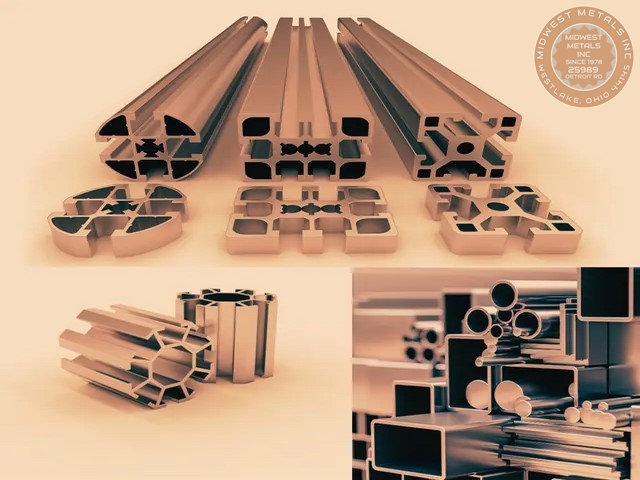Common Shapes:
Solid Shapes: Bars, rods, angles, channels, tees, and other profiles.
Hollow Shapes: Tubes, pipes, and other shapes with internal voids.
Materials:
Aluminum:
Widely used for its lightweight and corrosion resistance, often found in construction, transportation, and machine parts.
Steel:
Known for its strength and durability, used in structural applications and various industrial components.
Copper:
Offers good electrical conductivity and corrosion resistance, suitable for electrical components and plumbing.
Brass:
Provides excellent corrosion resistance and is used in products like pipe fittings and electrical components.
Nickel:
Creates high-strength products and is used in applications like mining equipment and electronics.
Advantages of Extrusion:
Complex Shapes: Enables the creation of intricate and complex shapes with consistent cross-sections.
High Material Strength: Produces parts with good strength and dimensional accuracy.
Cost-Effective: Can be more cost-effective than other metal forming methods, especially for high-volume production.
Reduced Waste:Extrusion can minimize material waste.
